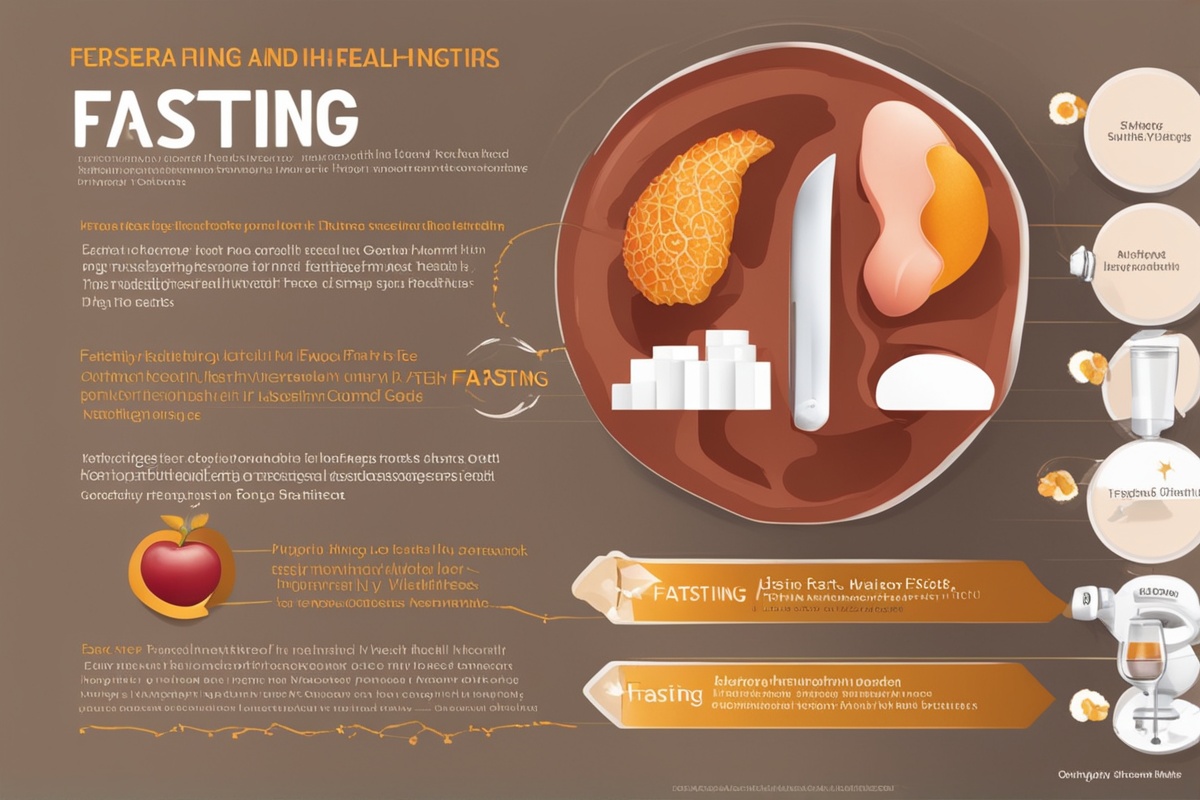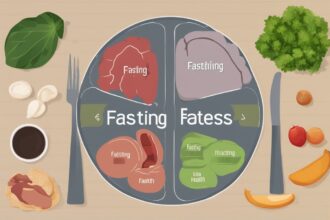Intermittent fasting (IF) has gained significant attention in recent years as a powerful tool for improving overall health. Among its many benefits, one area that stands out is its positive impact on liver wellness. The liver, a vital organ responsible for detoxification, metabolism, and nutrient storage, often bears the brunt of poor dietary habits and lifestyle choices. By incorporating intermittent fasting into your routine, you can support liver function and promote long-term health. In this article, we’ll explore how Intermittent Fasting Boosts Liver Wellness and why it might be the key to optimizing your liver health.
What Is Intermittent Fasting?
Intermittent fasting is not a diet but rather an eating pattern that alternates between periods of eating and fasting. Popular methods include the 16/8 method (fasting for 16 hours and eating during an 8-hour window), the 5:2 diet (eating normally for five days and restricting calories on two non-consecutive days), and alternate-day fasting. The primary goal of IF is to give the body a break from constant digestion, allowing it to focus on repair and regeneration processes. When it comes to liver health, this rest period can be incredibly beneficial, as it reduces the organ’s workload and supports its natural detoxification mechanisms.
How Intermittent Fasting Boosts Liver Wellness Through Autophagy
One of the key ways intermittent fasting boosts liver wellness is by triggering autophagy, a cellular cleanup process. During fasting, the body shifts from using glucose as its primary energy source to burning stored fat. This metabolic switch activates autophagy, where damaged cells and toxins are broken down and recycled. For the liver, which is constantly exposed to harmful substances, autophagy helps clear out damaged components and reduces inflammation. Studies have shown that this process can protect against liver diseases such as non-alcoholic fatty liver disease (NAFLD), a condition characterized by excess fat buildup in the liver.
Reducing Liver Fat Accumulation with Intermittent Fasting
Non-alcoholic fatty liver disease affects millions worldwide and is often linked to obesity, insulin resistance, and poor diet. Intermittent fasting has been shown to reduce liver fat accumulation by improving insulin sensitivity and promoting fat metabolism. When you fast, insulin levels drop, prompting the body to break down stored fat for energy, including fat stored in the liver. By regularly practicing IF, you can lower the risk of developing or worsening NAFLD. For more on how fasting impacts fat metabolism, check out our post on Fasting and Metabolic Health.
Intermittent Fasting and Liver Detoxification
The liver is the body’s primary detoxification organ, filtering out toxins from the bloodstream and metabolizing harmful substances. Constant eating, especially of processed foods, can overburden the liver, leading to toxin buildup and oxidative stress. Intermittent fasting boosts liver wellness by giving the organ a much-needed break. During fasting periods, the liver can focus on clearing out toxins rather than processing food. Additionally, fasting enhances the production of antioxidants like glutathione, which further supports detoxification. Learn more about detox processes in our article on Natural Detox Methods for Liver Health.
Improving Liver Inflammation and Oxidative Stress with IF
Chronic inflammation and oxidative stress are major contributors to liver damage and diseases like hepatitis and cirrhosis. Intermittent fasting helps combat these issues by reducing inflammation markers and boosting the body’s antioxidant defenses. Fasting lowers levels of pro-inflammatory cytokines and increases the production of protective proteins that shield liver cells from damage. Over time, this can lead to improved liver function and a lower risk of chronic liver conditions. If you’re curious about inflammation and diet, read our guide on Anti-Inflammatory Foods for Liver Support.
Practical Tips for Using Intermittent Fasting to Support Liver Health
If you’re new to intermittent fasting and want to harness its benefits for liver wellness, start slowly and consult with a healthcare professional, especially if you have pre-existing liver conditions. Begin with a 12/12 fasting schedule (12 hours of fasting and 12 hours of eating) before progressing to more intensive methods like 16/8. Stay hydrated during fasting periods, as dehydration can strain the liver. Focus on nutrient-dense foods during eating windows, such as leafy greens, lean proteins, and healthy fats, to provide your liver with the building blocks it needs for repair. Avoid overeating or consuming processed foods, as they can undo the benefits of fasting. For meal ideas, explore our Healthy Recipes for Liver Wellness section.
Disclaimer: The information provided in this article is for educational purposes only and should not be considered medical advice. Intermittent fasting may not be suitable for everyone, especially individuals with certain medical conditions, pregnant or breastfeeding women, or those with a history of eating disorders. Always consult with a healthcare professional or registered dietitian before starting any fasting regimen or making significant changes to your diet or lifestyle, particularly if you have existing liver health concerns or other medical conditions.
References
- Harvie, M., & Howell, A. (2019). Potential Benefits and Harms of Intermittent Energy Restriction and Intermittent Fasting Amongst Obese, Overweight and Normal Weight Subjects—A Narrative Review of Human and Animal Evidence. Behavioral Sciences.
- de Cabo, R., & Mattson, M. P. (2019). Effects of Intermittent Fasting on Health, Aging, and Disease. New England Journal of Medicine.
- Longo, V. D., & Mattson, M. P. (2014). Fasting: Molecular Mechanisms and Clinical Applications. Cell Metabolism.
- Madeo, F., et al. (2019). Caloric Restriction Mimetics against Age-Associated Disease: Targets, Mechanisms, and Therapeutic Potential. Journal of Clinical Investigation.
- Antoni, R., et al. (2021). Intermittent Fasting: A Promising Approach for Preventing and Treating Non-Alcoholic Fatty Liver Disease. Nutrients.
This content is for informational purposes only and not a substitute for professional advice.






